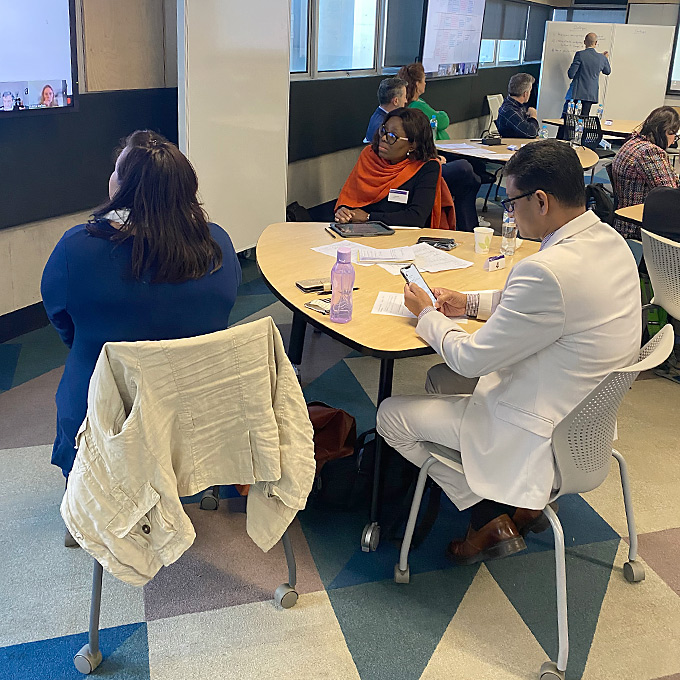The Global Change Institute brought together more than 40 senior leaders and experts from industry, government, the private sector and academia to discuss the physical and virtual workplace challenges and opportunities resulting from numerous global trends and events.
Participants at the Next-Generation Workspaces workshop collectively examined the question of where the modern workplace is heading and what new solutions will be needed to ensure workers and organisations remain productive, innovative, healthy and resilient.
The event provided deep insights into a broad range of related challenges facing both workers and organisations.
Organisations around the world are seeking evidenced-based solutions that enable them to effectively respond to evolving trends, market forces, legislative requirements, and unforeseen events.
As one senior industry participant said: “It’s a live experiment and we’re looking for better solutions,” – a sentiment echoed by most of the participants.
Several participants spoke of the emerging challenge that the increased use of online meetings places on traditional notions of collaboration, knowledge transfer between workers and mentoring.
In workplaces , many unplanned (even unsolicited) conversations happen around the water cooler or in the elevator or staff room.
Due to an increase in hybrid or blended working (regular use of multiple work places) and work from home, many organisations are discovering that junior staff are missing out on positive interactions with senior staff, reducing their ability to learn on the job which is critical in many professions.
A key question raised was how to maintain an office culture or overarching ethos in an organisation that now spends less time physically in the same place?
Workshop attendees heard that since the pandemic began, demand for data across the nation had increased by more than 70 per cent during business hours.
With some 8.2 million households and businesses now online, Covid-19 provided a robust stress test of the nation’s national broadband network (NBN).
Another take-home message was that good technology and compatible support equipment was essential. During the early days of the pandemic, it was not uncommon for workers to juggle online meetings from a laptop balanced on one knee, while perched on beanbag or simple kitchen chair.
Important tips on how to successly manage hybrid workplaces:
- Measure output not hours.
- Don’t organise meetings during lunch hours.
- Take into consideration the perennial parental woe of school pick-ups and drop-offs, before organising a team meeting.
- Working from home can be exhausting because we’re always ‘on’.
- Turn the video off when it’s not essential – it can also be distraction for people
- Plan how to transition back to the workplace after extended periods of work-from-home.
- Encourage physical activity, particularly when working at home.
- Watch out for the workaholics who log-on at 0600 and work through to 1800, non-stop.
- Burn-out is real.
While these are just a selection of the topics discussed at the workshop, the goal of GCI’s Innovation Broker Alex Blauensteiner is to translate the key challenges into tangible research questions. The Global Change Institute performs an exciting new bridging role in helping industry, government and researchers collaborate to solve important complex challenges.




